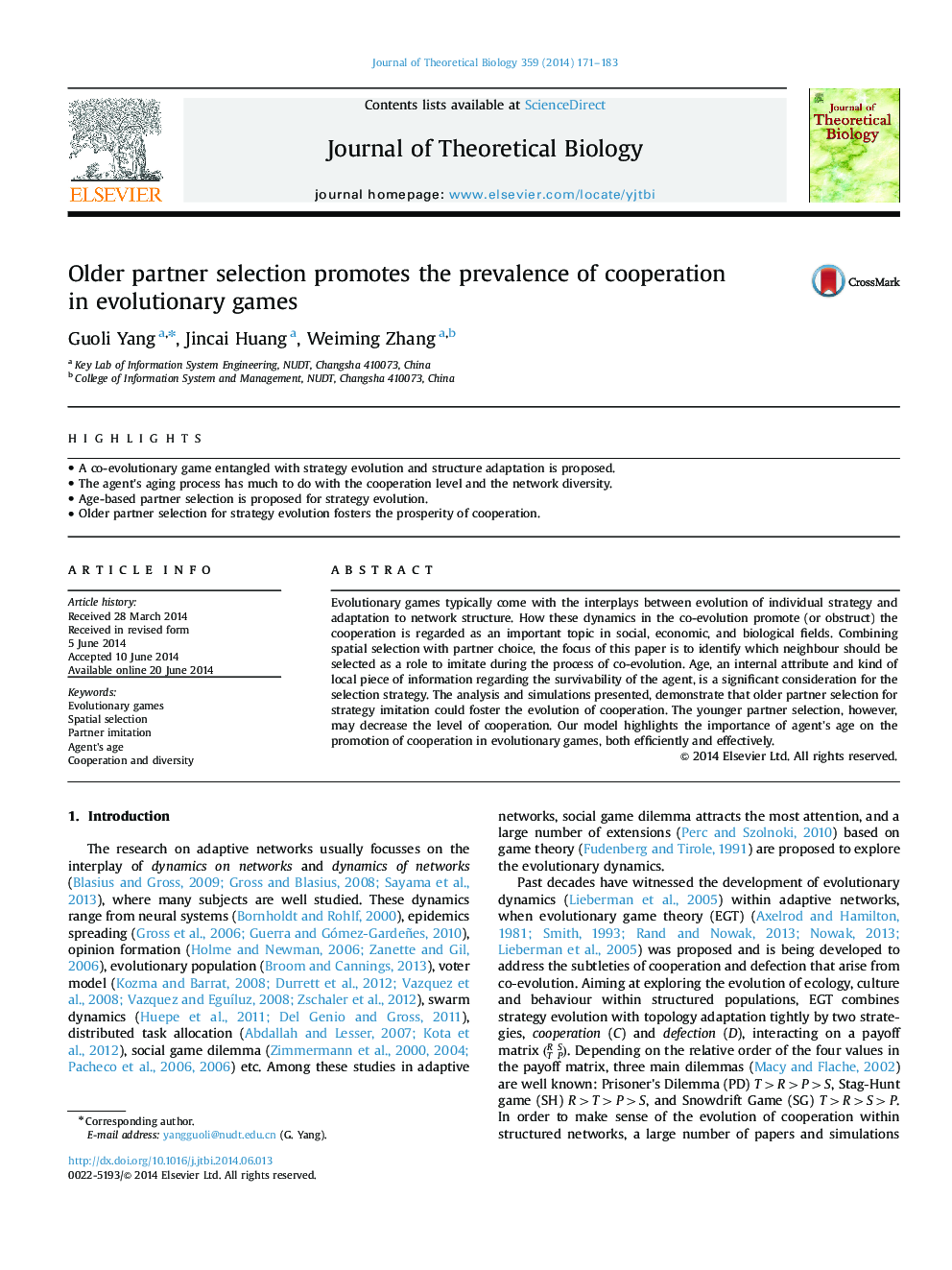| Article ID | Journal | Published Year | Pages | File Type |
|---|---|---|---|---|
| 6370343 | Journal of Theoretical Biology | 2014 | 13 Pages |
Abstract
Evolutionary games typically come with the interplays between evolution of individual strategy and adaptation to network structure. How these dynamics in the co-evolution promote (or obstruct) the cooperation is regarded as an important topic in social, economic, and biological fields. Combining spatial selection with partner choice, the focus of this paper is to identify which neighbour should be selected as a role to imitate during the process of co-evolution. Age, an internal attribute and kind of local piece of information regarding the survivability of the agent, is a significant consideration for the selection strategy. The analysis and simulations presented, demonstrate that older partner selection for strategy imitation could foster the evolution of cooperation. The younger partner selection, however, may decrease the level of cooperation. Our model highlights the importance of agent׳s age on the promotion of cooperation in evolutionary games, both efficiently and effectively.
Keywords
Related Topics
Life Sciences
Agricultural and Biological Sciences
Agricultural and Biological Sciences (General)
Authors
Guoli Yang, Jincai Huang, Weiming Zhang,
